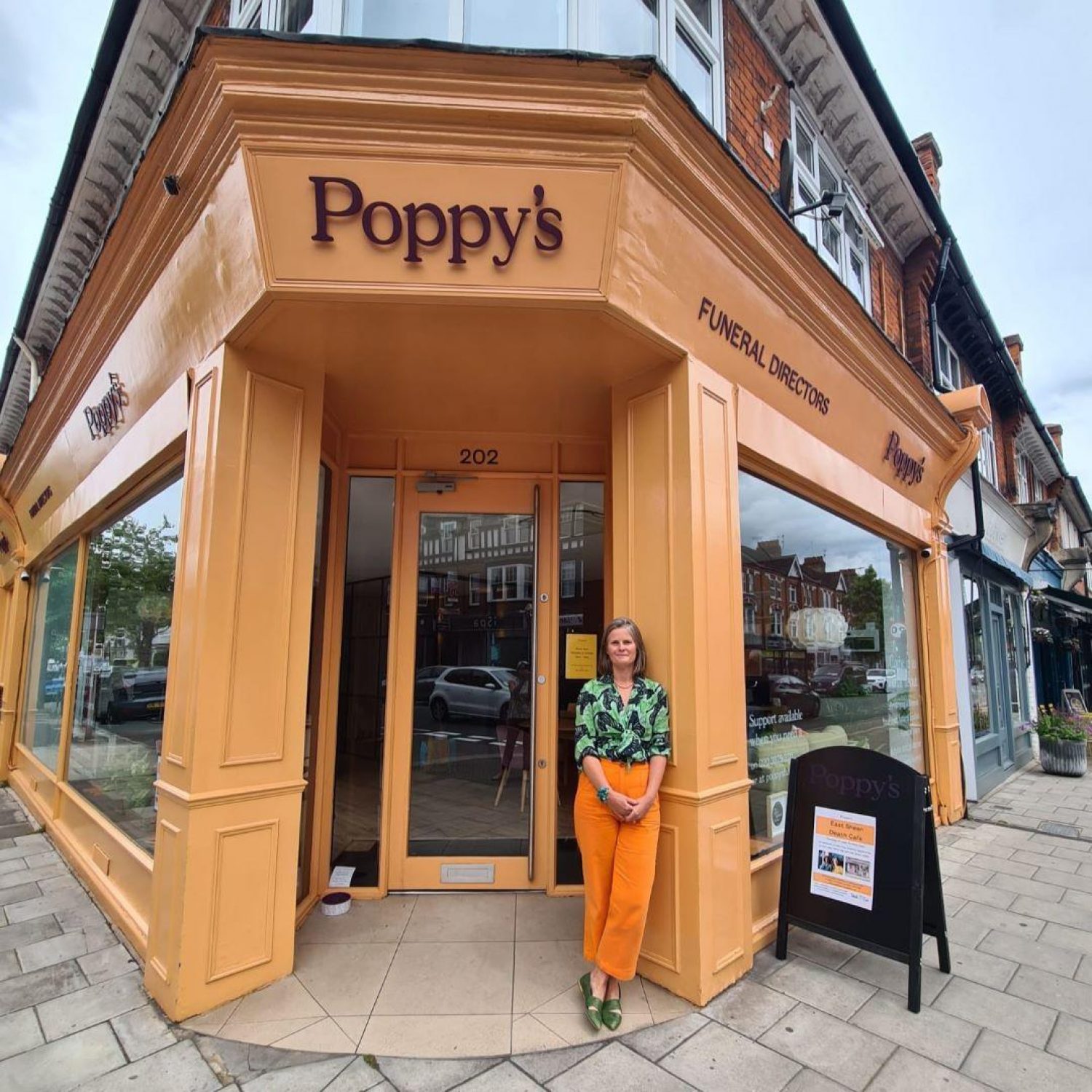Four minute read
Our founder, Poppy Mardall, reflects on what planning for birth can teach us about planning and preparing for the end of life.
"Plans are worthless, but planning is everything."
I think of this Eisenhower quote often when I speak to people who are preparing to have a baby. It is normal now to write a birth plan, to educate yourself about your choices, to read, watch and explore, to talk with family and friends. But this hasn’t always been the case.
Planning for birth
I remember in very early pregnancy with my first child, someone at the hospital asked me "what kind of birth" I wanted. I had no idea — a good one?! But it prompted me to start thinking and talking. I think that was the point.
Planning for birth doesn’t guarantee you a good experience, as this recent report into traumatic births shows. As with death, there is much that cannot be controlled. There is much that lies in the hands of professionals and requires systemic change to improve. The specifics of the birth and the opportunities and resources available for support are out of your control.
But knowing what is possible, knowing what to expect, and knowing who could support you, is essential in preparing parents and babies to have the best possible experiences of birth.
This wasn’t normal when I was born.
My mum’s stories of my older brother’s birth were of being sideswiped and traumatised. A great sense of "why did no one tell me?" pervaded her experience. The unexpected intensity, the lack of empowerment, the sense of being patronised and pushed to do what she was told.
She didn’t know what was coming nor what her choices were. She definitely didn’t feel supported. She got out of the hospital, shocked and bruised, glad to be home with my brother, as soon as she could.
Quite amazingly, she decided to have another baby (me). She knew more second time round and luckily for her the experience was better.
Why is it less common to plan for death?
I think my mum’s experience of being unprepared for birth in the 1980s has some parallels with how we deal with death now.
It is not normal for families and communities to proactively plan and prepare for dying and death. Most of us in the UK have limited understanding or expectations of what we might want and need as we navigate a death, the planning of a funeral, the relevant admin, and above all the emotional, mental and physical reality of grief.
It’s not that we don’t care about these experiences but rather we have lost, or we don’t yet have a culture of planning or preparing for it.
There is no space, there are no spaces, where we encourage each other to think and to talk about what we might want for ourselves and for the people we love, when someone dies. There is a sense of the conversation being morbid or strange, taboo even.
It is often only in retrospect, reflecting back on a past experience of a death and grief, that we start to realise what we might have wanted and needed, what could have been possible.
What can we do to plan for death?
But we can learn to prepare and plan for death, as is more possible now with birth.
We can read and educate ourselves. We can talk to family and friends to explore what we’d each want. We can normalise these conversations with neighbours and in our wider communities.
We can visit a free Death Café, where these conversations are welcomed. We can have a conversation with a good funeral director, with our doctors, with care homes.
We can support ourselves with information and knowledge to empower ourselves to be prepared and to know what is possible when someone dies.
We can figure out and establish who we’d want by our sides advocating for and with us, whether that be friends, family, a good funeral director or an end-of-life doula.
Why planning for birth and death matters
This is so important. Death, like birth, is a life experience that takes us to the very edges of ourselves. Emotions are intense, family dynamics escalate, exhaustion can be overwhelming, and our priorities shift at lightning speed.
We will remember our experiences of birth and death for our entire lives — whether supported and empowered, or traumatic and distressing, or anywhere in between. So it makes sense to me that we do what we can to prepare ourselves to have the best experience we can.
A fixed ‘plan’ is unhelpful and can be tyrannical: the nature of death and birth is they are outside of our control. But if our attitudes to planning for birth can change, so can our attitudes to preparing for death.
It is in the planning, rather than the plan — through taking the time to reflect on our hopes and wishes, what we don’t want as important as what we do want — that we gain the best chance of having an experience that is right for us, whether when life is just beginning or when it comes to an end.
To stay in touch with all the latest news and updates from Poppy's by email, sign up here or contact us if you need help planning a funeral.
